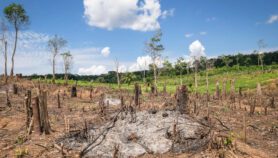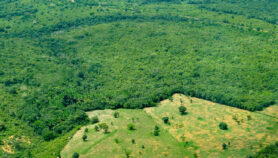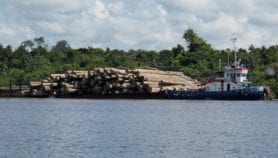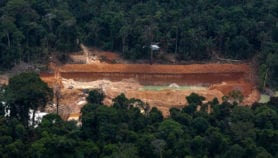By: Katie Mantell
Send to a friend
The details you provide on this page will not be used to send unsolicited email, and will not be sold to a 3rd party. See privacy policy.
Planting more trees is widely seen as one way to counter global climate change, as they are able to absorb carbon dioxide. But commercial forests — which are largely made up of fast-growing trees — present their own problem, namely the production of the chemical isoprene, which enhances the lifetime of another greenhouse gas, methane.
But trials carried out in Biosphere 2, a huge glass-and-metal structure near Tucson, Arizona, show that exposing a cottonwood plantation to increased levels of carbon dioxide actually reduced isoprene production by 40 per cent.
The research — published in this week’s Nature — suggests that increases in global carbon dioxide levels could partially offset the negative impacts of massive “agroforests”.
© SciDev.Net 2003













